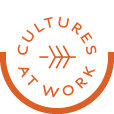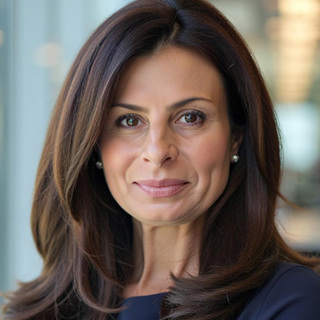How is corporate culture changing?
What are some of the major trends?
Michael: The biggest shift I’ve seen is an awakening around personal values. And what I mean by that is, what are the key priorities that you as an individual human being organize your life around? What are the core principles you hold dear?
Let's say, for example, you had five top values of family, health, growth, learning, and nature. Three or four years ago they might have taken a bit of a backseat because you spent most of your time earning money or participating in your career. When, for example, you have time at home because of COVID, you suddenly have time to engage with those values.
Marissa: We're seeing that come in, where people, especially Gen Z, coming into the workplace are saying, “I would like work to fit with my life, not be living to work.” It's a shift that's been coming for a while really.
We've been in this blip of industrialization, but work never looked like this prior to industrial revolution, with people leaving their homes to go work, work not being a family business, work being something that exists outside of your personal identity, it’s really a new phenomenon.
It's almost like the pendulum went completely the other way and we had to pretend we weren't even humans anymore. How do you think that’s going to change?
Michael: I suspect that we’ll be on a path to experience our humanity at a level that maybe we've deprived ourselves of before.
As an anthropologist, you get out and see cultures all around the world. And I've repeatedly been amazed at some of the more isolated communities of human beings living slightly disconnected from very industrialized, technological societies. And in many ways, they're more human. They’re living the experience of being a human in a village or in a community, with a lot more human emotions on display. If we don't have to pretend, we can just be ourselves in a very raw, authentic, open manner.
I think there's elements of that happening, that we're even seeing the early signs of that starting to emerge now as people are reorienting themselves within themselves. And I see that as a potentially hugely beneficial thing.
If our personal and professional selves are more integrated in the future ...
What are the most important characteristics needed for people to flourish?
Michael: The history of work was largely about control. Control of resources, timeframes, systems, who you recruit, who you promote. I think the integration of artificial intelligence and automation frees up a concept called “develop.” Now, people think, “We have this available now, what could we develop with that? Where could that take us that we haven't been before?” So, we've gone from control as a concept for leading, to development, i.e. how do we develop ourselves and use this incredible resource that's available to us.
It's a little bit like the Wild West at the moment, as it could go anywhere and anything could happen. It could be a good outcome or a not so good outcome, so how do you lead through that? It’s possible we’ll need to go back to controlling to take all these different opportunities.
In anthropology, we call it a liminal space, meaning we're in between. So, we haven't let go of the past yet, but we haven't arrived at the future. It's like an adolescence, somewhere in between the two.
Artificial intelligence is becoming creative, with biases and morality built in.
How will AI influence culture and how can we prepare for it?
Michael: The most important thing you can do in a workplace culture is make it safe to communicate. If you haven't created a culture where it’s safe to communicate, you’re creating a cult instead of a culture, where you follow the leader. You end up with a toxic culture.
At the moment, the best thing leaders can do is become a social scientist for 90 days in the workplace. And just walk around and ask people: “How are you using it? What's working? What's not working? Where do you see there's opportunities for us? And where are you alarmed or concerned about what this could mean for us?” Because it's so new, that none of us have the answer.
Marissa: We’re almost creating a two-class system because there's a whole part of the workforce that never went home or don’t use AI. People that have to manufacture or work in the cleaning business, for example. So, you’ve got half of the population on a rocket ship of innovation and assistance, and the others might be feeling a little left behind.








